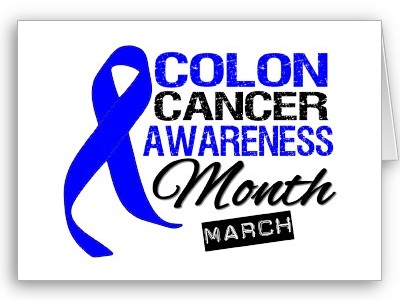Each year during the month of March, patients, survivors, health care providers, and many others whose lives have been touched by colorectal cancer come together to help spread awareness about this deadly disease.
Colorectal cancer actually refers to any cancer that originates in the colon or the rectum, and it is second leading cause of cancer deaths in the U.S. According to the CDC, many of these deaths could be avoided if more people (50 years and older) would get routinely screened for colorectal cancer.
The Symptoms of Colorectal Cancer
Unfortunately, this type of cancer often does not produce any noticeable symptoms during its earliest stages. This is just one of the reasons why it can be so deadly, as colorectal cancer is often not diagnosed until a much later stage. The most common symptoms that have been associated with this colorectal cancer include the following:
- Blood present in the stool or rectal bleeding
- Abdominal pain or cramping that does not subside
- Unexplained weight loss
If you wait until after one of these problems have occured to get screened for cancer, then this may already be too little too late. If you are 50 years old or older, then it is time to get pre-emptive with your colorectal cancer screening. This is the best way to ensure that you do not succumb to this disease.
Some Facts on Colorectal Cancer
As it stands, 1 in every 20 will be affected by this type of cancer. While colorectal cancer is diagnosed in both men and women, studies have shown that men tend to be more susceptible. In either case, the overwhelming majority of cases have been diagnosed in patients who are 50 or older. In fact, 90 percent of all new cases and 95 percent of all deaths occur in this particular age range.
The Importance of Colorectal Cancer Screening
One of the primary reasons for Colorectal Cancer Awareness Month is to help raise awareness of the risks of this disease and why it is so important to go in for routine screenings after you turn 50. To put it plainly, these screening tests can save many lives.
When detected early, the five-year survival rate is 90 percent. If detected at a more advanced stage, the five-year survival rate drops to just 12 percent.
Screening Tests Available for Colorectal Cancer
Your physician will be able to help you choose the most appropriate screening routine based on your age and any underlying risk factors. In many cases, this could involve getting a colonoscopy, which you will only need once every 10 years. The other tests that are used to screen for cancer in the colon include a stool DNA test, flexible sigmoidoscopy procedure, and/or a double-contrast barium enema.
The most important aspects of National Colorectal Cancer Awareness Month are creating more awareness and helping to educate people about the potential risks of cancer. This year, you could set the example for your loved ones by getting screened, and this may encourage them to get screened as well.
